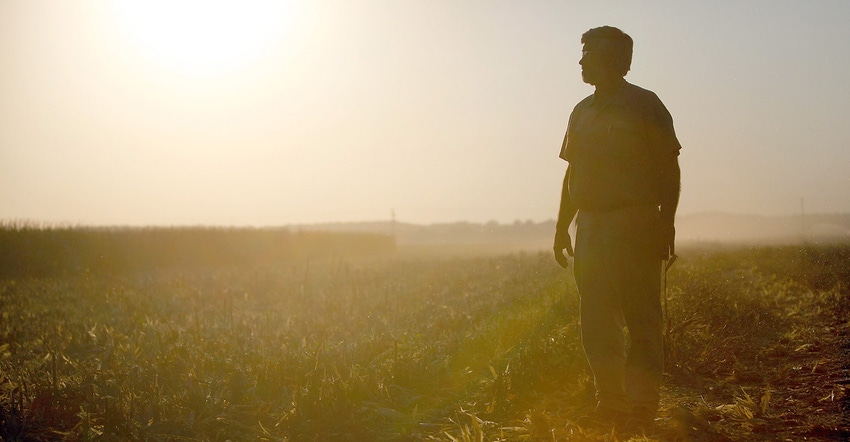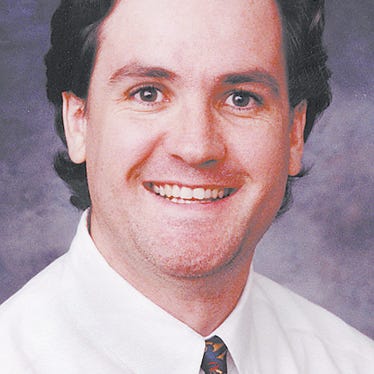
It’s an uncomfortable topic but the number of farmers suffering from depression continues to be high. A 2016 study by the CDC shows those working in agriculture hold the highest rate of suicide.
A recent story in The Guardian put the issues facing many farm families into stark focus. One of those interviewed for the story was Dr. Michael Rosmann, an Iowa farmer and therapist.
Rosmann spoke with Delta Farm Press in early January. Among his comments:
On the reaction to the article in The Guardian…
“I’ve been completely overwhelmed with the number of requests. There have been over 400 requests – 70 of them from farmers and ranchers both inside and out of the United States. Most people are trying to find resources and, in some cases, they go to great lengths discussing their current situations, which can be pretty bleak.
“I’ve also received lots of reactions from folks saying ‘I was touched by the piece.’ I‘ve not received a single negative response by email or telephone. Somehow, that’s incredible. There’s a higher power moving this.”
On Rosmann’s normal practice over the course of a year…
“I’m not a typical psychologist. I’m 71 years old, now, and have a small practice limited to farm people. That’s the way it’s been for 20 years.
“I also hold workshops and have been writing a weekly column (‘Farm and Life Stress’) for about 20 years.
“Usually, I meet people at their homes or a neutral setting. Sometimes we meet for more than an entire weekend to deal with things like multi-generational conflict in a family, where they finally want to do something about it. Or, perhaps it’s a case where a family member has been treated for depression unsuccessfully: ‘Everything has been tried. What are we going to do?’
“We work our way through the situations and find avenues of treatment that might still be available.
“I also help with farm succession plans. It isn’t uncommon to meet several times when you’re talking succession and estate distribution. Those are such emotional-laden and important times for people to exercise their rights and figure out their stake in the business.
“And I said ‘business’ when farming is really a way of life.”
Can you address the typical emotional makeup of a farmer? Are they prone to the problems of depression and suicide? Are there a couple of key factors, a thread you can pull on?
“There are typical factors.
“It should be noted there are also risks of exposure to some agricultural chemicals that can play a role in the onset of depression.
“I like to call the urges you’re getting at the ‘agrarian imperative.’ There’s something that motivates farmers to strive incredibly hard to hang on to the resources needed to produce food, fiber and, now, renewable energy.
“That drive, I think, is an outgrowth of territorial instincts in animals. Coyotes mark their territories in a variety of ways. Humans mark our territories with fences, legal descriptions, sidewalks. Sometimes we place signs that say ‘this belongs to me’ or it signifies that.
“We acquire the best territories to reproduce other humans. We have that drive and it’s pretty well established genetically. We know this drive leads farmers to work too hard, especially when there’s a threat to the loss of their land and the resources needed to farm.
“When there’s a threat like a disease outbreak or a financial threat, farmers try extremely hard to keep going. They keep going to the point they deplete themselves of essential chemicals of well-being like serotonin and oxytocin.”
More on farmer make-ups, tendencies…
“When we aren’t successful as farmers it strikes us at our very core. We are also imbued with psychological factors that show up in successful farmers. Work done in Scotland and Australia – and subsequently replicated in many agricultural areas – shows farmers have a drive to work and tolerate adversity, have a capacity to rely on themselves and work alone, a tendency to take risks because it leads to a greater likelihood of finding solutions and advancing oneself.
“I think we can even say in bygone eras, our own ancestors took risks to leave Europe and Asia to come here, or go to Australia or wherever they wanted to farm. They had no access to personal land in Europe under the political systems.
“So, those tendencies help farmers. However, those same things hurt farmers when we’re stressed. We don’t reach out well and become vulnerable. That’s a contributing factor to suicide. People undertake self-harm when nothing else is working. Sometimes that act is one of sacrifice to bring attention to the plight of other farmers, sometimes to secure the proceeds of a life insurance policy. So, taking one’s life can sometimes be viewed as a last-ditch effort to salvage an agricultural operation.
“All that comes under the ‘agrarian imperative.’
“It’s also worth pointing to research that’s looked at the most successful herders of cattle and goats in Africa. It was found the herders prone to attention deficit/hyperactivity disorder were the most successful. They were the ones who didn’t need as much sleep, worked hard, kept an eye out for greener pastures, and were more likely to spot predators.
“Subsequently, we’ve found these same tendencies toward attention deficit/hyperactivity disorder in farmers around the world. It isn’t very well known but it is pretty clear farmers have this tendency.”
How best to approach a farmer who is suffering? Should they seek advice from someone like you first?
“During the farming crisis of the 1980s, many states had crisis hotlines answered by folks who had agricultural backgrounds. They’d speak with the farmer confidentially at no cost and provide suggestions for people they could talk to locally.
“Now, the number of mental health professionals serving farmers is simply diminishing. We don’t have the needed numbers. There are only five states that even have farm crisis hotlines anymore: Nebraska, Wisconsin, Iowa, New York and Vermont.
“So what do people do? I get three to five calls a week asking for help. In many cases, I don’t know who in their area is available for counseling. I urge them to talk to Extension staff – sometimes they know people who are good sounding boards. It doesn’t have to be a professional in the behavioral health field. Sometimes it’s a wise farmer who wants to help and mentor others, it can be a pastor, sometimes it’s Extension personnel who’ve had some training in crisis and marriage counseling.
“I also encourage farmers to approach their family doctor. That is more acceptable to many. It isn’t as scary to go see the family doctor and discuss what’s going on. Really, farmers can talk to just about anyone who is wise and knows how to maintain confidentiality.
“I’m seeing quite a bit of change in this area. Farmers are becoming much more open about seeking behavioral health assistance. If you take good care of yourself emotionally as well as physically, it will make you a better farmer – and we intrinsically know that.”
On a lack of public understanding…
“There is an awakening going on, but most of the public still doesn’t have much of a grasp on how treacherous or difficult successful farming is. It’s the only profession in which most people have a secondary income off the farm to pay for the household and, sometimes, to help pay the mortgage. About 80 percent of all farm families have an off-farm source of income…
“That demonstrates, yet again, an incredible drive of farmers to hold onto their land.
“Think about the fact that the number of fatalities on the farm have declined by half over the last 30 years. At the same time, we’ve not seen a similar decline in farm-related suicides. Rather, we’ve seen an increase and the number of farmers who take their lives due to psychological issues is much higher than from farm accidents or illnesses.”
Rosmann can be reached at [email protected]
About the Author(s)
You May Also Like






